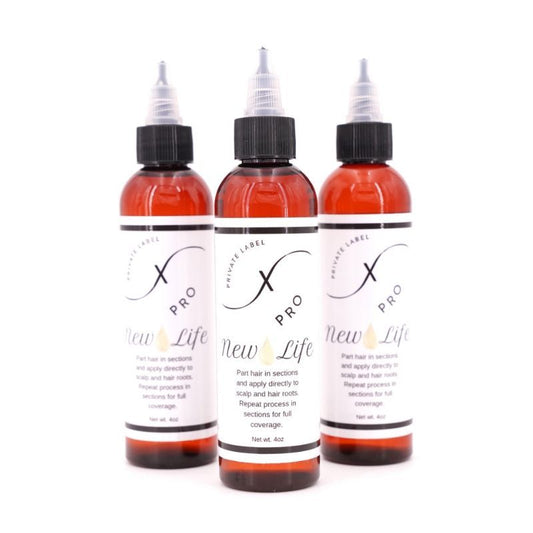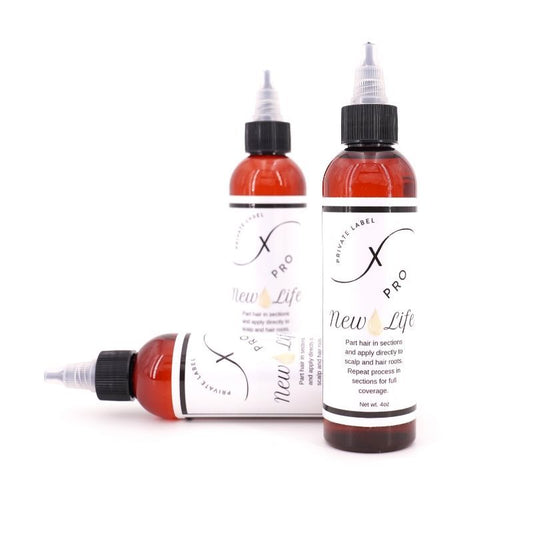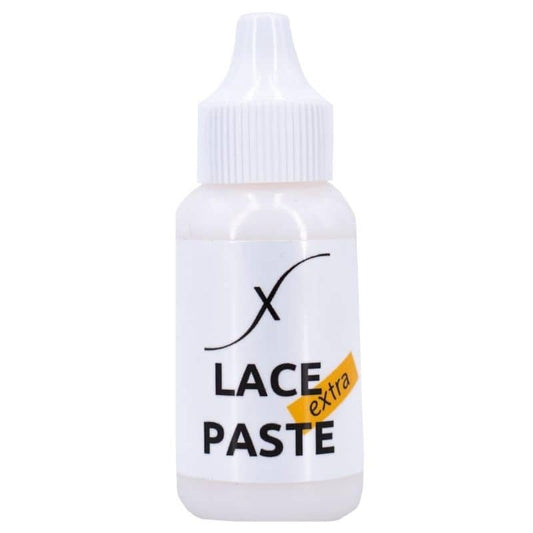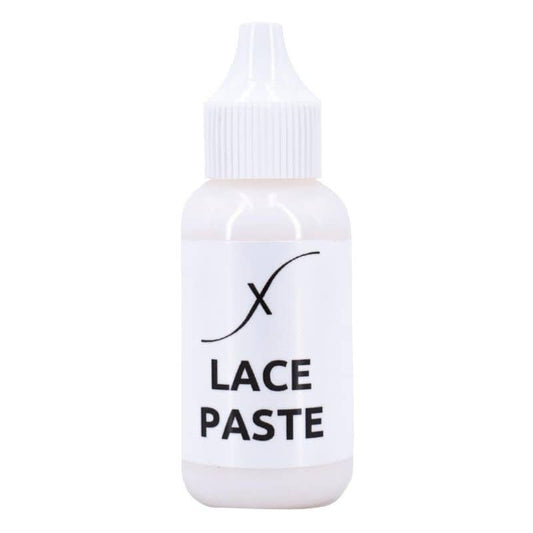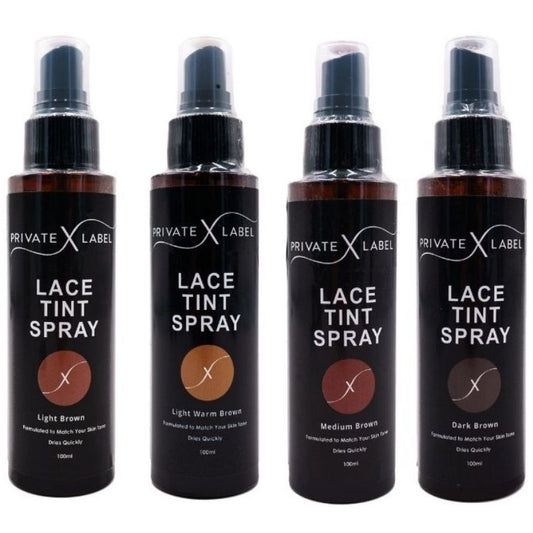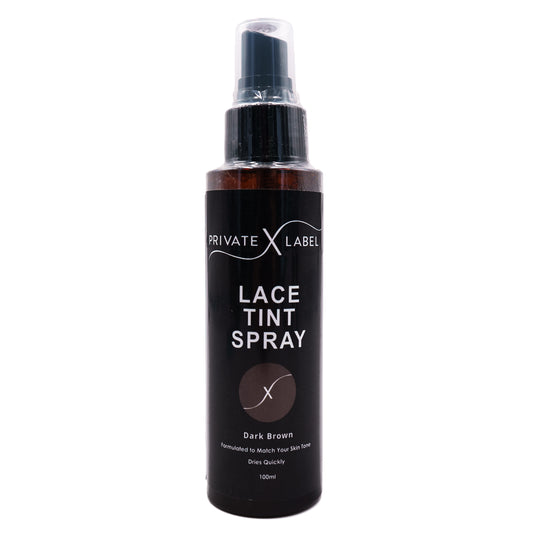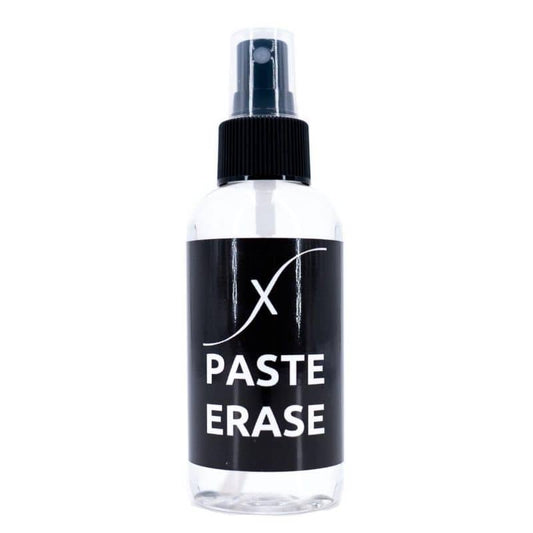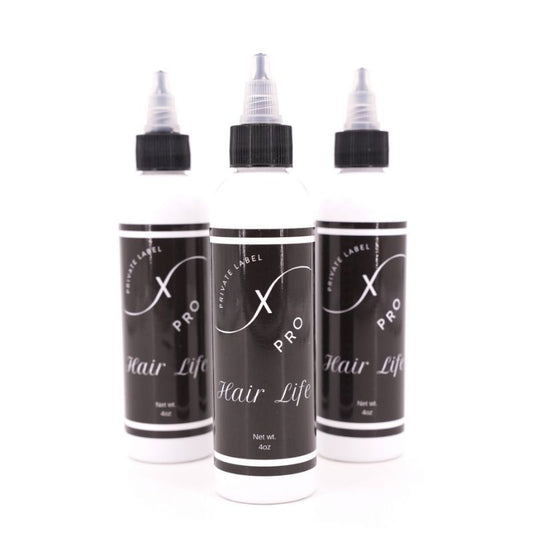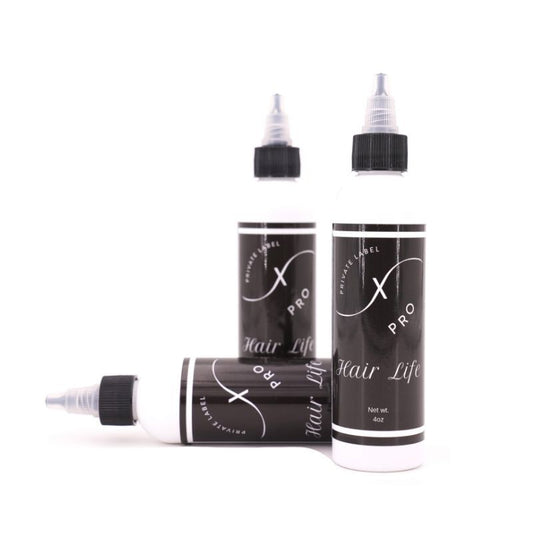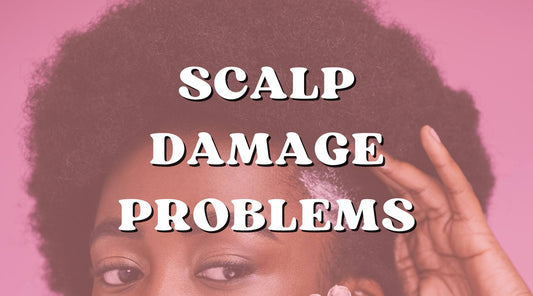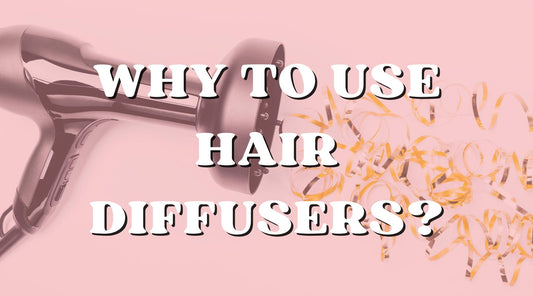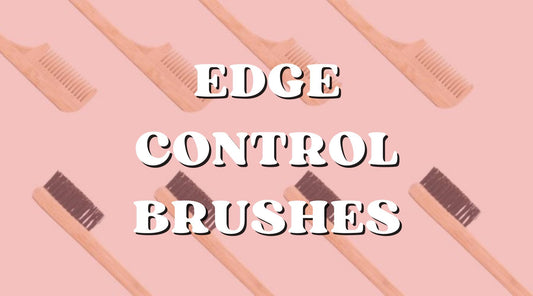1260 Memorial Drive
Atlanta, Georgia 30316
404-458-1330
Dandruff Sucks! Our Dry Scalp Remedies You Can Do Right Now!
Mikey MoranDon’t you just hate that itch that leaves your scalp feeling dry and flaky?
If you’ve been experiencing excessive itching, irritation, or shedding, you may be suffering from a dry scalp or dandruff. 😔
Don't let it ruin your sew-in weaves and read the next tips.

The Causes
While they have some of the same symptoms, dry scalp and dandruff are different conditions.
A dry scalp occurs when the skin has little to no moisture, causing the scalp to become irritated and shed white or yellow flakes on your hair bundles.
Dry scalp can also develop from:
- Eczema
- Using the wrong hair products
- Not brushing hair enough
- Irritated skin
- Psoriasis
- Bacterial infections on the scalp
Dandruff stems from Seborrheic dermatitis, a condition in which the scalp produces extra skin cells.
When excess skin cells mix with oils on the scalp, dandruff appears.
Dandruff can also develop from:
- Dry skin
- Not cleaning hair enough
- Psoriasis
- Sensitivity to hair products
- Stress
- Yeast-like fungus

Remedies for Dandruff and Dry Scalp
If not treated, these conditions can worsen and become even more embarrassing.
Are you suffering from a dry scalp or dandruff?
Check out these remedies that will help clear up all your dandruff and dry scalp issues.
Medicated Shampoo
Knowing which shampoo to use and how to use it is a must when stopping dandruff or a dry scalp.
Using the wrong shampoo can lead to infectious irritations, and failing to wash your hair can cause dryness and flakiness.
To ease your irritated scalp, try using a medicated shampoo, as it removes and helps control scalp buildup, soothes irritation, stops itching, and replenishes moisture.
I recommend seeking your dermatologists to get a customized product for your specific needs. However, if you cannot, medicated shampoos are sold over the counter for your convenience.
Be sure to choose a shampoo that is fragrance-free and dermatologist-tested.
Also, be sure to look for these ingredients:
- Selenium Sulfide- an antifungal agent that aids in treating skin yeast, scalp ringworm, and seborrheic dermatitis.
- Menthol- contains cooling and calming properties that may soothe irritated and itchy skin.
- Botanicals- aids in moisturizing hair.
- Salicylic Acid- aids in shedding the skin’s top layer to wash away the dead skin cells that makeup dandruff.
- Pyrithoine Zinc- aids in preventing flaking and scaling of the scalp caused by dandruff.
Before washing your hair, make sure to check the label. The shampoo that you are using could cause your scalp irritations.
I suggest purchasing Tea Tree Special Shampoo or Head & Shoulders Clinical Strength; however, there are a ton of shampoos on the market like the charcoal shampoo designed to help you get rid of your dry scalp or dandruff.
Have you tried any magical medicated shampoos? Let us know in the comments!

Deep Conditioning
When your scalp isn’t producing enough natural oil, it may become itchy, dry, or flaky.
To provide the nourishment it needs, I recommend trying a deep conditioning dry scalp.
Deep conditioning aids in moisturizing and soothing the scalp, as well as reviving dry, brittle hair. It is especially essential in the winter when the air becomes drier and the winds increase, stealing your hair’s moisture.
This may leave you with an unwanted dry and flaky scalp. Don’t worry because choosing the right deep conditioner can restore your hair’s moisture in no time!
When selecting a deep conditioner, be sure to pick one that contains these ingredients:
- Hydrolyzed Wheat Protein- aids in retaining moisture and repairing damaged hair.
- Behentrimonium (BTMS)- aids in removing product buildup and oil from the hair that causes dandruff.
- Panthenol- provides vitamin B-5 and increases moisture retention.
- Cetearyl Alcohol- aids in easing the process by softening hair.
To maximize your results, I recommend going to a professional stylist. However, deep conditioning treatments are simple enough to perform from the comfort of your home.
Here’s how to do it:
- Choose a product
- Co-wash or use a sulfate-free shampoo
- Apply deep conditioner
- Cover the head with a plastic shower cap & let it sit for 25 minutes
- Sit under a hairdryer or use a blow dryer to absorb product into hair easily (optional)
- Rinse
Deep conditioning is an excellent way to promote moisture retention throughout your hair and scalp.
What are some of your favorite deep conditioners and techniques? Feel free to share them in the comments.

Hair Mask
Hair Mask nourishes and conditions hair while eliminating dandruff.
It is like food for your hair and can tackle the root of what is causing your scalp to flake.
The great thing about a hair mask is that you can use whatever is in your refrigerator. Here are some of my favorite hair masks:
Yogurt, Honey & Lemon Mask
This mask will leave your scalp feeling fresh, clean, and revived.
The acid from the lemon works to balance scalp pH & oil production, while the honey and yogurt provide moisture and nourish your hair.
Onion Hair Mask for Dandruff
Onions can be used for more than adding flavor to your food!
They contain potent antimicrobial properties that help in fighting dandruff. It also improves the circulation of the blood to the scalp and flushes out toxins.
Omved Hair Pack
This hair pack includes hibiscus, fenugreek, neem, and bhringraj, which all work together to circulate blood in the scalp, balance pH & oil production, and promote a healthy scalp.

Aloe Vera Hair Mask for Dandruff
Aloe Vera aids in moisturizing and soothing a dry and itchy scalp while ridding bacteria and dandruff.
Treat your hair with this mask and watch it become more hydrated than ever.
What are some of your favorite homemade hair mask recipes? Let us know in the comments.

Hot Oil Treatment
A great way to relax and soothe your scalp is with a hot oil treatment.
Hot oil treatments strengthen dry, brittle hair, promote hair growth, and stimulate blood circulation.
These treatments serve as an agent in restoring oil into the hair and preventing dandruff.
These are mainly beneficial during the cold winter months. Hot oil treatments are simple enough for you to do from the comfort of your home.
How to do a hot oil treatment from home:
- Heat oil in a microwave-safe bowl
- Allow the oil to cool
- Apply to scalp
- Cover the head with a shower cap and leave it on for 25 minutes
- Sit under the hair dryer or steamer to help the oil penetrate the scalp with moisture (optional)
- Rinse and apply a leave-in conditioner
- There are many oils that you can use for your hot oil treatment.
Here are some of my favorite oils and their benefits:
- Coconut Oil: Provides moisture and locks in essential oils that your body naturally produces.
- Grapeseed Oil: Contains vitamin E and helps to keep moisture locked in.
- Carrot Seed Oil: Provides relief from itching, flaking, and burning of the scalp
- Jojoba Oil: Penetrates scalp and removes dead skin.
- Almond Oil: Soothes discomfort that comes from a dry, itchy scalp.
There are a ton of other oils that you can use to perform a hot oil treatment.
Do you have any? Share them with us in the comments.

Practicing Stress Management
Can stress be the reason for your dandruff?
While it is not a direct cause of the issue, individuals under pressure often have a weak immune system, which can worsen their cases of dandruff and make them even more difficult to prevent.
Life is tough and can hit us with many stressors at once.
Here are some practices that may help to alleviate the stress that could be affecting the health of your hair:
- Exercise
- Meditation
- Writing
- Reading
- Hiking
- Going on a vacation
What are some of the ways you relieve stress? Let us know in the comments.
If you have severe scalp problems you can get Medical Wigs after consulting with your doctor.
There are other wig options that can benefit your scalp with a little of breath such as V-Part Wigs and Capless Wigs.

Diet
Did you know your diet affect hair and could be the cause of your dry scalp?
If you lack essential vitamins such as B6 and B12, you may want to consider incorporating more wholegrain cereals, fruits, and green leafy vegetables into your diet.
I recommend taking a multivitamin to ensure that you are getting all the necessary vitamins and nutrients.
Also, eating too many sugary foods can affect your scalp, causing it to become dry and flaky.
It is also vital to limit the consumption of spicy foods, salt, and alcohol as they too can create scalp irritations. 🥵
Incorporating these remedies into your weekly hair regimen will help to prevent a dry scalp and dandruff.
Which of these treatments is your favorite?
Let us know in the comments. Also, share any remedies that have helped to prevent your dry scalp and dandruff issues.

